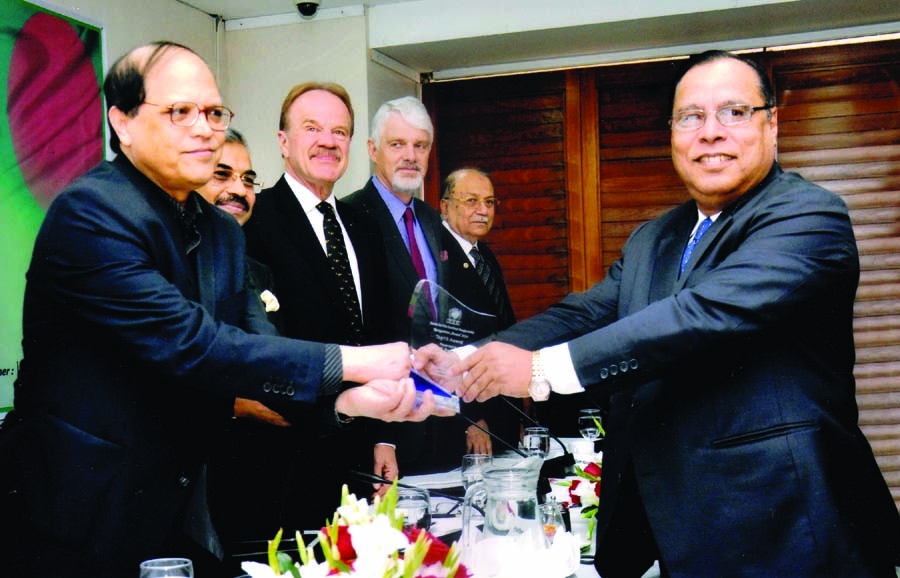
Terming NRBs as national heroes, Bangladesh Bank Governor Dr Atiur Rahman on Tuesday said the non-resident Bangladeshis (NRBs) are massively investing their hard-earned money in many productive sectors these days belying the notion that they are spoiling their money.
“It’s not true that they’re spoiling their money in unproductive sectors. We shouldn’t always spread negative news. These days, they’ re investing in many productive sectors. But still we can do better,”he said.
The central bank chief was addressing as the chief guest at the inaugural session of the world conference series 2014 on ‘NRB Talent, Remittances and Investment for Development’ at city’s Sonargaon Hotel.
The BB boss urged the NRBs to get connected with the Economic Zones, to be set up at different parts of the country, for further investment saying the central bank will help them make their investment smoother and easier.
He mentioned that the NRBs’ investment in productive sectors like SMEs, banks, airlines, electricity generation and tourism resorts is boosting the country’s economy.
About the current investment trend, Atiur said an ‘investment mood’ is prevailing now as the country has made a turnaround after the prolonged political turmoil over the national election.
Former Bangladesh Bank governor Dr Mohammad Farashuddin, former deputy governor Khondkar Ibrahim Khaled, Federation of Bangladesh Chambers of Commerce and Industry (FBCCI) President Kazi Akram Uddin Ahmed, US Ambassador in Dhaka Dan Mozena and European Union (EU) Ambassador to Bangladesh William Hanna were present at the function.
Centre for Non-Resident Bangladeshis arranged the event presided over by its chairperson MS Shekil Chowdhury.
Terming Bangladesh a ‘gold mine’, Atiur said Bangladesh needs to be explored in a better way through joint efforts.
Laying emphasis on stronger bridge between the NRBs and their homeland, Atiur said the central bank has taken various initiatives, including setting up of an online database for NRBs for improving working conditions and providing NRB-related information.
“For NRBs, this database helps promote and uphold investment information, proper remittance channel and method, important financial or economic moves of government in which NRBs can participate,” he said.
He also urged the representatives of exchange houses to be vigilant so that the NRBs do not face any harassment in availing themselves of banking services.
Atiur mentioned that remittances in Bangladesh now stand around 10 percent of GDP, rising from 5.0 percent of GDP in the beginning of 2000.
“Over the past four years (FY 2009-13), remittance inflows in Bangladesh have grown around 11.0 percent on average, whereas in other Asian countries the growth was 7.1 percent,” he said.
Atiur said the inflows of remittance in FY 2012-13 were around US$ 14.46 billion, a 12.59 percent growth creating a current account surplus for the last five years only in south Asia despite being a trade deficit country.
“This demonstrates the inherent strength of our external sector and hence that of our currency. And one must give credit to NRBs for attaining this strength,” said the central bank chief.

